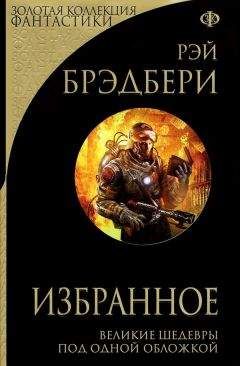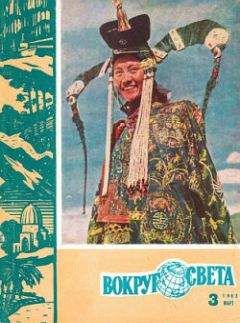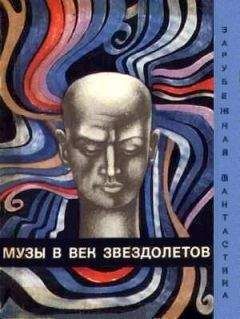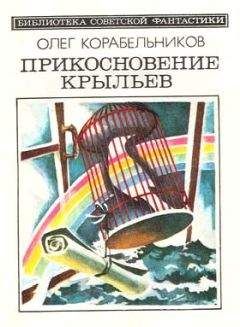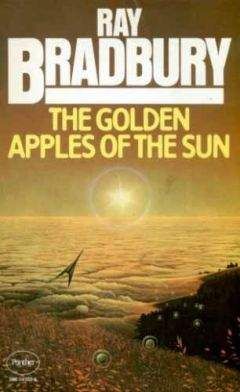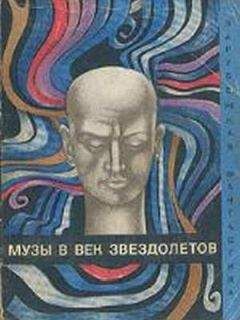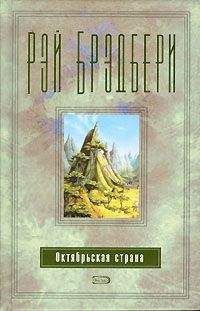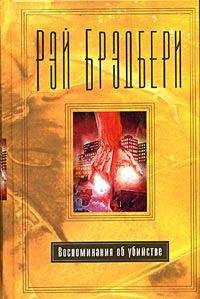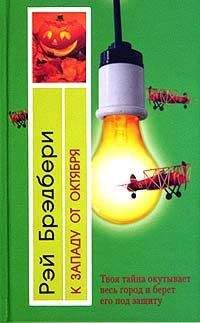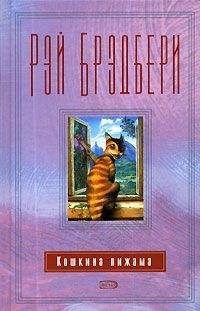Рэй Бредбери - Октябрьская страна (The October Country), 1955
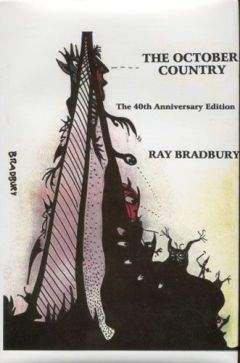
Скачивание начинается... Если скачивание не началось автоматически, пожалуйста нажмите на эту ссылку.
Жалоба
Напишите нам, и мы в срочном порядке примем меры.
Описание книги "Октябрьская страна (The October Country), 1955"
Описание и краткое содержание "Октябрьская страна (The October Country), 1955" читать бесплатно онлайн.
И вновь сборник «ужастиков» раннего Брэдбери, разбавленных поздними житейско-психологическими историями («Прикосновение пламени»). Из ранних своих запасов писатель извлёк на свет настоящие жемчужины: такие как «Озеро» и «Коса».
– О, кого мы видим! – воскликнул Ральф. – Сегодня вход бесплатный! Специально для старых клиентов!
Карлик взглянул на него снизу вверх, испуганно отступил на шаг, и в его маленьких черных глазах отразилось замешательство. Зашептав слова благодарности, он поднял руку и начал натягивать горлышко свитера на дрожащий подбородок. Другая рука сжимала серебряную монетку. Осмотревшись по сторонам, он быстро кивнул и вошел в зеркальный коридор. Тысячи перекошенных мукой лиц замелькали на стеклянных стенах лабиринта.
– Ральф, – прошептала Эйми, вцепившись в его локоть. – Что ты задумал?
– Решил поиграть в благотворительность, – с усмешкой ответил он.
– Ральф!
– Тихо! Слушай!
Они замерли в теплой тишине билетной будки, и через пару минут в глубине лабиринта послышался крик.
– Ральф!
– Ты думаешь, это все? – ответил он. – Послушай, что будет дальше!
Раздался еще один крик, за которым последовали горькие рыдания и стремительный топот. Судя по звукам, карлик налетал на зеркала, отскакивал от них и, истерично завывая, метался в тупиках лабиринта. Когда он выскочил в коридор, Эйми отшатнулась, увидев его широко открытый рот и дрожащие щеки, по которым стекали слезы. Мистер Биг пронесся мимо нее в пылавшую молниями ночь и, затравленно осмотревшись, побежал по пирсу.
– Что ты сделал, ублюдок?
Ральф корчился от хохота и хлопал себя ладонями по ляжкам. Она ударила его по щеке.
– Что ты сделал?
Он не мог перестать смеяться.
– Идем. Я все тебе покажу.
Они шли по лабиринту раскаленных добела зеркал, и тысячи пятен ее губной помады казались красными огоньками, сиявшими в серебряной пещере. С обеих сторон мелькали сотни истеричных женщин, за которыми крались хищные фигуры мужчин с искривленными ртами.
– Идем, идем, – шептал он за ее спиной.
Они вошли в небольшую комнату, заполненную запахом пыли.
– О Боже! Ральф, что ты наделал?
Это была заветная комната, которую карлик посещал каждую ночь в течение целого года. Он входил сюда, как в святилище, с закрытыми глазами, предвкушая чудесный миг, когда его уродливое тело станет большим и красивым.
Прижимая руки к груди, Эйми медленно подошла к зеркалу.
Оно было другим. Оно превращало людей в крохотных и скорченных чудовищ – даже самых высоких, самых прекрасных людей. И если новое зеркало придавало Эйми такой жалкий и отвратительный облик, что же оно сделало с карликом – этим напуганным маленьким существом?
Она повернулась к Ральфу и с упреком взглянула ему в глаза:
– Зачем? Зачем ты так?
– Эйми! Вернись!
Но она уже бежала мимо зеркал. Из-за жгучих слез ей было трудно найти дорогу, и она почти не помнила, как оказалась на ночном пирсе. Не зная, в какую сторону идти, Эйми остановилась. Ральф схватил ее за плечи и развернул к себе. Он что-то говорил, но его слова походили на бормотание за стеной гостиничного номера. Голос казался далеким и незнакомым.
– Замолчи, – прошептала она. – Я не хочу тебя слушать.
Из тира выбежал мистер Келли.
– Эй, вы не видели тут маленького паренька? Подлец стащил у меня заряженный пистолет. Вырвался прямо из рук! Я вас прошу, помогите мне его найти!
Он побежал дальше, выискивая воришку между брезентовых шатров под гирляндами синих, красных и желтых ламп. Эйми медленно пошла за ним следом.
– Куда ты направилась?
Она посмотрела на Ральфа, как на незнакомца, с которым случайно столкнулась в дверях магазина.
– Надо помочь Келли найти этого парня.
– Ты сейчас ни на что не способна.
– И все же я попытаюсь… О Господи! Это моя вина! Зачем я звонила Билли Файну? Если бы не зеркало, ты бы так не злился, Ральф! Зачем я покупала это проклятое стекло! Мне надо найти мистера Бига! Найти во что бы то ни стало! Даже если это будет последним делом в моей жалкой и никому ненужной жизни!
Утирая ладонями мокрые щеки, Эйми повернулась к зеркалам, которые стояли у входа в "лабиринт". В одном из них она увидела отражение Ральфа. Из ее груди вырвался крик. Но она продолжала смотреть на зеркало, очарованная тем, что предстало ее глазам.
– Эйми, что с тобой? Куда ты…
Он понял, куда она смотрит, и тоже повернулся к зеркалу. Его глаза испуганно расширились. Ральф нахмурился и сделал шаг вперед.
Из зеркала на него щурился гадкий и противный маленький человечек, не больше двух футов ростом, с бледным и вдавленным внутрь лицом. Безвольно опустив руки, Ральф с ужасом смотрел на самого себя.
Эйми начала медленно отступать назад. Повернувшись на каблуках, она зашагала к набережной, потом не выдержала и перешла на бег. И казалось, что теплый ветер нес ее на своих крыльях по пустому пирсу – навстречу свободе и крупным каплям дождя, которые благословляли это бегство.
The Next in Line 1947
It was a little caricature of a town square. In it were the following fresh ingredients: a candy-box of a bandstand where men stood on Thursday and Sunday nights exploding music; fine, green-patinated bronze-copper benches all scrolled and flourished; fine blue and pink tiled walks- blue as women's newly lacquered eyes, pink as women's hidden wonders; and fine French-clipped trees in the shapes of exact hatboxes. The whole, from your hotel window, had the fresh ingratiation and unbelievable fantasy one might expect of a French villa in the nineties. But no, this was Mexico! and this a plaza in a small colonial Mexican town, with a fine State Opera House (in which movies were shown for two pesos admission: Rasputin and the Empress, The Big House, Madame Curie, Love Affair, Mama Loves Papa).
Joseph came out on the sun-heated balcony in the morning and knelt by the grille, pointing his little box Brownie. Behind him, in the bath, the water was running and Marie's voice came out:
"What're you doing?"
He muttered "- a picture." She asked again. He clicked the shutter, stood up, wound the spool inside, squinting, and said, "Took a picture of the town square. God, didn't those men shout last night? I didn't sleep until two-thirty. We would have to arrive when the local Rotary's having its whingding."
"What're our plans for today?" she asked.
"We're going to see the mummies," he said.
"Oh," she said. There was a long silence.
He came in, set the camera down, and lit himself a cigarette.
"I'll go up and see them alone," he said, "if you'd rather."
"No," she said, not very loud. "I'll go along. But I wish we could forget the whole thing. It's such a lovely little town."
"Look here!" he cried, catching a movement from the corner of his eyes. He hurried to the balcony, stood there, his cigarette smoking and forgotten in his fingers. "Come quick, Marie!"
"I'm drying myself," she said.
"Please, hurry," he said, fascinated, looking down into the street.
There was movement behind him, and then the odor of soap and water-rinsed flesh, wet towel, fresh cologne; Marie was at his elbow. "Stay right there," she cautioned him, "so I can look without exposing myself. I'm stark. What is it?"
"Look!" he cried.
A procession traveled along the street. One man led it, with a package on his head. Behind him came women in black rebozos, chewing away the peels of oranges and spitting them on the cobbles; little children at then- elbows, men ahead of them. Some ate sugar cane, gnawing away at the outer bark until it split down and they pulled it off in great hunks to get at the succulent pulp, and the juicy sinews on which to suck. In all, there were fifty people.
"Joe," said Marie behind him, holding his arm.
It was no ordinary package the first man in the procession carried on his head, balanced delicately as a chicken-plume. It was covered with silver satin and silver fringe and silver rosettes. And he held it gently with one brown hand, the other hand swinging free.
This was a funeral and the little package was a coffin.
Joseph glanced at his wife.
She was the color of fine, fresh milk. The pink color of the bath was gone. Her heart had sucked it all down to some hidden vacuum in her. She held fast to the french doorway and watched the traveling people go, watched them eat fruit, heard them talk gently, laugh gently. She forgot she was naked.
He said, "Some little girl or boy gone to a happier place."
"Where are they taking-her?"
She did not think it unusual, her choice of the feminine pronoun. Already she had identified herself with that tiny fragment parceled like an unripe variety of fruit. Now, in this moment, she was being carried up the hill within com-pressing darkness, a stone in a peach, silent and terrified, the touch of the father against the coffin material outside; gentle and noiseless and firm inside.
"To the graveyard, naturally; that's where they're taking her," he said, the cigarette making a filter of smoke across his casual face.
"Not the graveyard?"
"There's only one cemetery in these towns, you know that. They usually hurry it. That little girl had probably been dead only a few hours."
"A few hours--"
She turned away, quite ridiculous, quite naked, with only the towel supported by her limp, untrying hands. She walked toward the bed. "A few hours ago she was alive, and now--"
He went on, "Now they're hurrying her up the hill. The climate isn't kind to the dead. It's hot, there's no embalming. They have to finish it quickly."
"But to that graveyard, that horrible place," she said, with a voice from a dream.
"Oh, the mummies," he said. "Don't let that bother you."
She sat on the bed, again and again stroking the towel laid across her lap. Her eyes were blind as the brown paps of her breasts. She did not see him or the room. She knew that if he snapped his fingers or coughed, she wouldn't even look up.
"They were eating fruit at her funeral, and laughing," she said.
"It's a long climb to the cemetery."
She shuddered, a convulsive motion, like a fish trying to free itself from a deep-swallowed hook. She lay back and he looked at her as one examines a poor sculpture; all criticism, all quiet and easy and uncaring. She wondered idly just how much his hands had had to do with the broadening and flattening and changement of her body. Certainly this was not the body he'd started with. It was past saving now. Like clay which the sculptor has carelessly impregnated with water, it was impossible to shape again. In order to shape clay you warm it with your hands, evaporate the moisture with heat. But there was no more of that fine summer weather between them. There was no warmth to bake away the aging moisture that collected and made pendant now her breasts and body. When the heat is gone, it is marvelous and unsettling to see how quickly a vessel stores self-destroying water in its cells.
"I don't feel well," she said. She lay there, thinking it over. "I don't feel well," she said again, when he made no response. After another minute or two she lifted herself. "Let's not stay here another night, Joe."
"But it's a wonderful town."
"Yes, but we've seen everything." She got up. She knew what came next. Gayness, blitheness, encouragement, everything quite false and hopeful. "We could go on to Patzcuaro. Make it in no time. You won't have to pack, I'll do it all myself, darling! We can get a room at the Don Posada there. They say it's a beautiful little town-"
"This," he remarked, "is a beautiful little town."
"Bougainvillea climb all over the buildings-" she said.
"These-" he pointed to some flowers at the window "-are bougainvillea."
"-and we'd fish, you like fishing," she said in bright haste. "And I'd fish, too, I'd learn, yes I would, I've always wanted to learn! And they say the Tarascan Indians there are almost Mongoloid in feature, and don't speak much Spanish, and from there we could go to Paracutin, that's near Uruapan, and they have some of the finest lacquered boxes there, oh, it'll be fun, Joe. I'll pack. You just take it easy, and-"
Подписывайтесь на наши страницы в социальных сетях.
Будьте в курсе последних книжных новинок, комментируйте, обсуждайте. Мы ждём Вас!
Похожие книги на "Октябрьская страна (The October Country), 1955"
Книги похожие на "Октябрьская страна (The October Country), 1955" читать онлайн или скачать бесплатно полные версии.
Мы рекомендуем Вам зарегистрироваться либо войти на сайт под своим именем.
Отзывы о "Рэй Бредбери - Октябрьская страна (The October Country), 1955"
Отзывы читателей о книге "Октябрьская страна (The October Country), 1955", комментарии и мнения людей о произведении.





